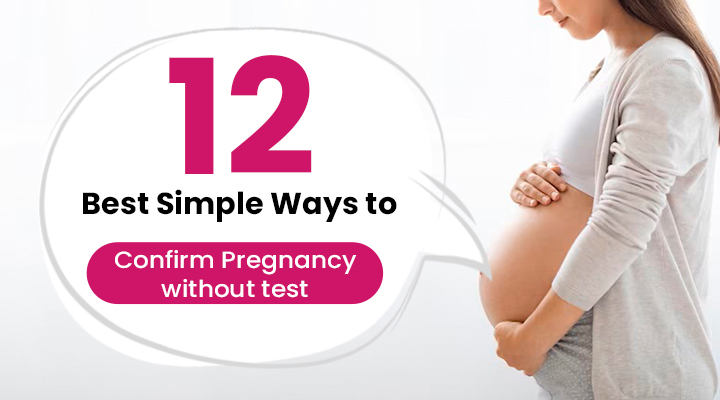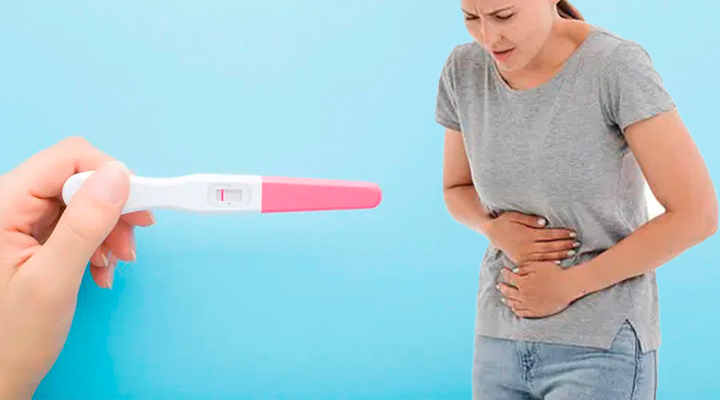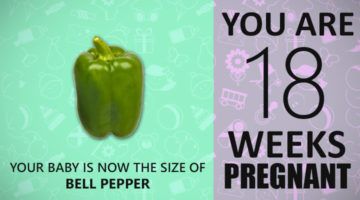12 Best Simple Ways to Confirm Pregnancy without test
Confirming pregnancy is an exciting and life-changing moment for many women. In this article, we will explore 12 simple ways to confirm pregnancy without test. While taking a pregnancy test is the most reliable method to determine if you’re pregnant, several signs and symptoms can help you gain an initial indication of pregnancy. Remember, these methods are not foolproof, and consulting a healthcare professional for an accurate diagnosis is always recommended. So there are a no of features typically seen in pregnant women if you are wondering how you can confirm pregnancy before taking an actual test.
If your body is undergoing a range of changes along with missing periods then you may have a baby in your tummy. These are not completely accurate methods and also don’t guarantee exact results. But actually by noting these signals you can decide on your visit to the gynecologist. So what are these symptoms exactly like? After almost two weeks of conception fatigue, sore breasts, and back pain start which is even before you have missed your period. The following signs and symptoms will help you to confirm your pregnancy and also in pregnancy confirmation and point out that you are pregnant.
12 Best Simple Ways to Confirm Pregnancy without test
Missed periods
How can you identify pregnancy with this symptom? Keep in mind that missing your period is not a sure sign of pregnancy. There are times you miss periods because of reasons like Regular use of contraceptives, hormonal imbalance, stress, or certain medications. But if you are trying to conceive and have had regular periods before then missed period might mean you are pregnant.
Spotting
Another early pregnancy symptom. Spotting will commonly occur when the embryo implantation takes place on the uterus wall and is also called implantation spotting. If you happen to notice a few drops of pink or brownish vaginal discharge that occurs a week before your next period then this could be implantation bleeding. However, keep in mind that this does not occur with every expectant mommy. Check with your gynecologist if you happen to experience any pain or discomfort.
Bloating
In early pregnancy hormonal changes may make you feel bloated, this feeling is also experienced by women just before their menstrual period. That’s why your clothes may feel tighter than usual at the waistline, even early on when the uterus is still quite small.
Vomiting and Nausea
Morning sickness or Nausea is one of the earliest signs to find out that you are pregnant as early as three weeks of pregnancy. Any regular tastes or smells can make you nauseous. Although, called “morning sickness” the symptoms occur at any time of the day. It is an indication that your body is getting ready for pregnancy and the hormonal levels of Human chorionic gonadotropin (HCG) and estrogen are rising. So, if you have nausea or vomiting for no specific reason which is making you rush to the bathroom repeatedly, then it might be a sign that you have conceived.
Sore nipples and breasts
Breasts will feel painful, sore, and tender to touch. Soreness of nipples or breast tenderness is another top sign of pregnancy which may begin as early as 1-2 weeks of conception. Your breasts will feel tender all of a sudden and also might be painful to touch. The sensitivity will increase with the passing days. A closer view will tell you that breasts have become fuller and also the areolas are dark with multiple small spots on the nipples.
Frequent urination
An increase in the frequency of urination can be an early sign of pregnancy. As the body undergoes hormonal changes, the blood flow to the kidneys increases, resulting in more frequent trips to the bathroom
Rise in Basal Body Temperature
How to confirm pregnancy before you miss your period. A high basal temperature for 18 days is a sure sign of pregnancy. If you are trying to get pregnant start charting your basal body temperature. Every morning note down your body temperature before you leave your bed. When you see an increased body temperature for 18 days, there are chances that you may be pregnant.
Clinical pregnancy tests follow standard operating procedures to check pregnancy, but some methods are traditional and have become popular due to years of observations and trials by women from different parts of the world. They depend on the chemical reaction of the active substances present in it to elements contained in urine.
Urine test by Storing
In a clean bottle, collect your urine just the way you do for any of your urine tests.
For 3-4 hours leave it undisturbed.
You can be pregnant if a white film can be noticed on the surface of urine.
If urine remains clear, you are not possibly pregnant.
Toothpaste Test
Collect the first urine of the day in a bottle. Take some white toothpaste and then add the collected urine sample to it. Let it stand for 2-3 hours. If it starts to froth or changes color, you probably are pregnant.
Barley and Wheat Test
Recently, this method was tested in labs and results were 70% accurate. Women are asked to urinate on barley and wheat seeds for many days; if you observe barley sprouts, a boy, and if you notice wheat sprouts, then a baby girl, and if none of them sprout, she is not pregnant.
Bleach Test
The first urine of the day has to be collected and then add bleaching powder.
If the urine begins to froth giving effervescence, you may be pregnant.
You can use a concentrated soap solution if you cannot find bleach.
Pregnancy Test using Mustard Powder
Mustard powder activates the menstrual cycle. If you have a missing menstruation cycle or there is a delay, prepare a bucketful of water using 2 cups of mustard powder and soak in it followed by a warm water shower. You should get menses after this within two days. But after 2 weeks, if you don’t see any sign of your period, you may be pregnant.
There are plenty of non-medical tips to know if you are pregnant. Most tests are not accurate and were used in olden times. But they are so much fun to practice while you wait for your periods.
Secondly, it doesn’t involve anything risky but just a small quantity of urine samples.
But keep in mind that pregnancy is confirmed only with a pregnancy test. You can perform a pregnancy test by using urine or blood samples. Pregnancy tests detect the level of human chorionic gonadotropin hormone (HCG), which is a hormone produced within 10 days of fertilization by the placenta. Also, the hormone levels double every two days in the initial 60 days of pregnancy.
These Pregnancy tests are performed using a woman’s blood and are done in early pregnancy and are done by a doctor to confirm a pregnancy test taken at home. Remember that blood tests are exact and can even detect pregnancy in the second-week post-conception.
Also, after two weeks post-conception, any woman can perform a pregnancy test at home by checking a urine sample. Home pregnancy tests are gaining popularity and have become more precise now. If used properly, home pregnancy tests are 98 to 99 percent accurate.
While the methods mentioned above can provide initial indications of pregnancy, they are not as reliable as a pregnancy test or medical confirmation. It’s important to consult a healthcare professional to obtain an accurate diagnosis and appropriate prenatal care. Remember, each woman’s body is unique, and pregnancy symptoms can vary. If you suspect you might be pregnant, seeking medical advice is always the best course of action.










